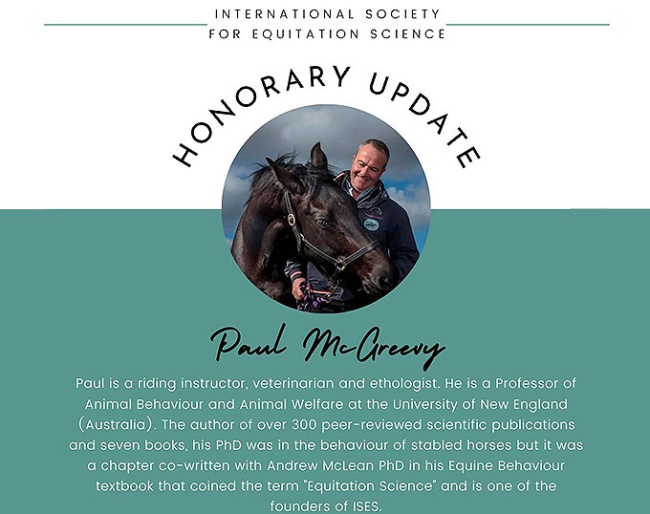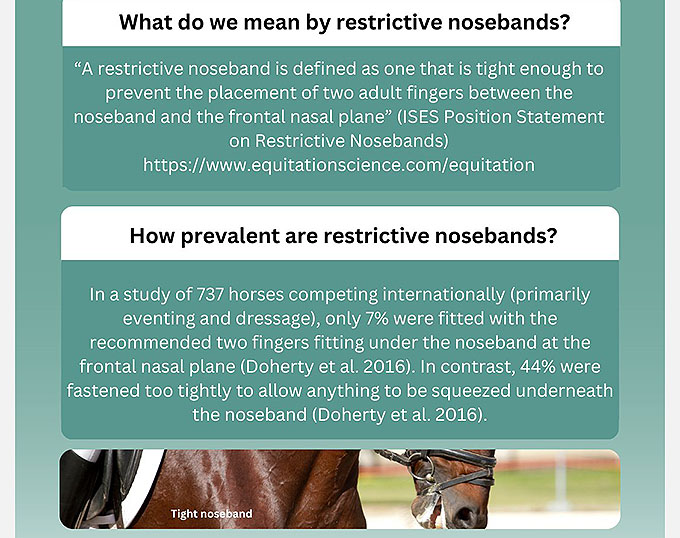
Professor Paul McGreevy of the University of Sydney (AUS) is is a riding instructor, veterinarian and ethologist. His PhD focused on the functional significance of stereotypic behaviour in stabled horses. Based at the Sydney School of Veterinary Science, he is the author of over 300 peer-reviewed scientific publications and seven books and has received numerous international awards for his research and teaching innovations.
"A Good Life for Horses" - Why We Should Bother and How One Can Advocate
Horses in our care deserve a good life because they are arguably more vulnerable to abuse than any other domestic species. On top of that we ride them and compete with them; often using aversive stimuli to push them to their physical limits and beyond. For all these reasons, horses in our care deserve excellent standards of care, standards that match horses’ lives with their telos and bear close scrutiny under the Five Domains model.
Data from equitation scientists can help ethicists and owners to explore what stakeholders mean by a good life for horses and whether horses in different contexts can live a good life. When scholars know their data well and can see their findings being ignored, they should be comfortable enough to speak out. In this presentation, I will explore how scientists can advocate for standards of care and why being a public scientist is not an easy choice.
For far too long the public regard for evidence-based arguments has been suppressed by the power of media and corporations. And while the importance of being a good communicator is ostensibly supported in academia, the mainstream media seems to have more time for scholars from the humanities than those from the sciences.

This presentation explores how best to establish and manage public commentary when your research or areas of expertise intersect with industries and contradict their position. It also touches on how to decide when to comment and how to make yourself heard.
Veterinary practitioners are rarely short of an opinion, but what happens when veterinary scientists believe change is needed and they hold what may be pivotal data? I will offer a perspective from more than 35 years as a veterinarian, 30 of those specialising as an animal welfare scientist, where my work has revealed evidence that is often disliked in the competitive worlds of racing, equestrianism, and companion animal breeding.
ISES note: all of the presentations are available as videos in the member's area of the ISES website, or interested viewers can pay-per-view to gain access to specific presentations.